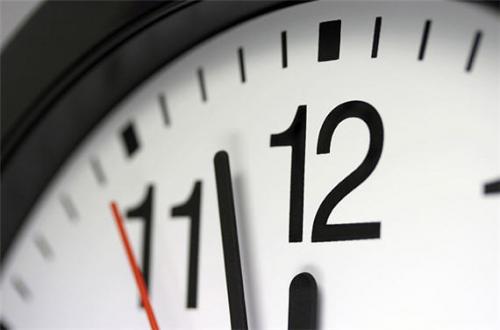Obama's political clock ticks away as voters await an answer to the economy

As the nation continues to wrestle with high unemployment and other economic concerns, USA Today's analysis of voter sentiment indicates that President Obama's brand of hope and change appears insufficient to carry him through to a second term at this point.
Well-noted and summarized in their analysis are how all of President Obama's key legislative approaches to current issues like healthcare and foreign policy are no match for dispelling the significant economic anxiety that Americans are facing:
"The jobless rate on Friday ticked above 9% again. The housing market nationwide continues to fall. Gas prices are straining family's summertime budgets. President Obama's signature health care law to expand insurance coverage doesn't command majority support more than a year after it was signed into law. Washington negotiations on reducing the budget deficit are as polarized as ever" the piece stated.
The most compelling factor is that according to the report's cited USA TODAY/Gallup Polls, voters question Obama's ability to lead on economic issues, with as little as 37% support. Also on this issue, a slight majority of voters believe that he doesn't deserve re-election. This seems to a breaking point for the president as voters' discontent on his handling of the economy was also made evident in completely different poll that I covered in April of this year.
In that April study from the Pew Center, a majority of Independents and Republicans expressed the belief that the economic recovery will take longer than expected. Also noted in the past Pew poll is that just under 50% of Independents believe that Republicans can better manage the federal government than Democrats.
Up to this point, most Republican candidates in the presidential race have been falling into the typical partisan mindset of meeting and countering Obama's seemingly disjointed agenda. What they're not doing, though, is developing a more unique approach of meeting voters where they're most concerned. For most Republicans, the 2012 race appears to be more about beating President Obama than it is about helping the American people.
However, one upper-tier candidate, namely Ron Paul, seems to be as committed as ever to his longstanding and trademark stances on limited government, fiscal conservatism, and individual freedom. While many Republicans may have a problem with Paul's foreign policy views, economic concerns are speaking louder than any other issue at this point, which may bode well for his libertarian-minded campaign.
As my colleague W.E. Messamore notes, Paul's limited government stance will challenge the big government approach of anticipated frontrunners like Mitt Romney. If Republicans really want change, they will have to break from the tradition of supporting candidates who look a lot like "the other party."




